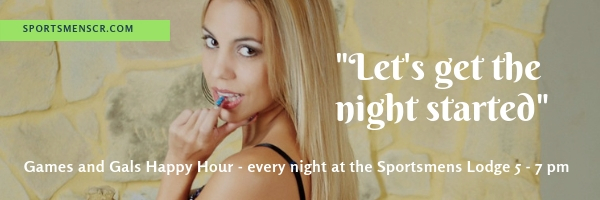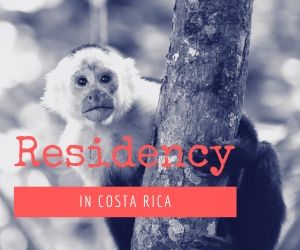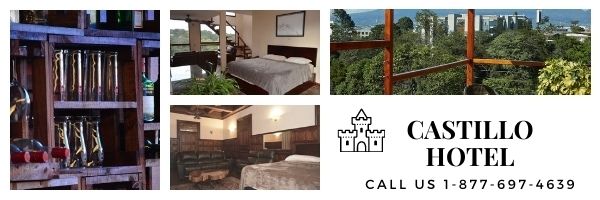While giving no definitive answers, maybe this article from last week's Tico Times will help some:
Jacó Condo Market Partly Cloudy
U.S. slowdown causes buyers to think again
By Peter Krupa
Tico Times Staff |
pkrupa@ticotimes.netJACO, Puntarenas – Plopped smack up against a two-kilometer stretch of sun-blasted beach on Costa Rica's central Pacific coast, Jacó is God's gift to developers.
One of the few places in the country with titled beachfront property, two years ago its reputation reached a tipping point that sent piles of money flooding into the financing of high-rise condominium developments.
The plans have sprouted into a dozen gray skeletons rising to 12 stories or more. Along the beach, construction noise on the towers can occasionally be heard over the rumble of the surf.
The beach is hot, and so is the real estate market.
But the shadow cast by an economic slowdown in the United States is lengthening, and condo developers are starting to feel the chill.
Sales are slowing, especially at the luxury end, and developers and brokers are seeing fewer serious shoppers.
“Buyers are more cautious these days,†says Shawn Fletcher, the sales manager for DayStar Properties. “In years past, people were just throwing deposits at us. Now, I think a lot of questions are being asked.â€
Opinions about the Jacó real estate market are as varied as the town itself, with its checkered image as a surfer flop, hooker hangout, and beach vacation spot. Some, like Ronald Jacoby, president of Luxury Real Estate Group S.A., say the market has gone into a tailspin.
More of an investor than a broker, Jacoby says he's bought and sold 135 units in Jacó.
With the condos worth about $100,000 each (the low end of the market), Jacoby says he had to dump his last 13 condos at a deep discount, about $55,000 apiece.
“I'm bailing out because the market is just terrible,†Jacoby says.
But there are others who say the problem is not demand. It's supply.
“I know this sounds crazy, but I don't have a lot of product,†says David Karr, a sales associate with Century 21.
Karr says the mid-range condos that his clients come looking for have simply sold out.
“In the $150,000 to $250,000 range, it's really hard to find inventory,†he says.
Solid numbers are hard to come by due to the market's lack of a comprehensive multiple listing service.
Construction figures, however, reflect Karr's observations more than Jacoby's. Building is up. During January and February of 2007, builders applied for 33,449 square meters worth of construction permits in the canton of Garabito, where Jacó is located. In the first two months of this year, that number tripled, to 102,723 square meters.
But just because developers are building doesn't mean people are buying. In the air-conditioned offices of Vista CR, which is putting up three luxury condo towers on or near the beach, managing partner Brad Swanson sat at a boardroom table strewn with site plans.
He says the market is suffering from a slowdown.
“I would term it a crisis of confidence of the American purchaser,†he says, choosing his words carefully.
Though Vista CR still gets plenty of walk-ins at its Jacó office, fewer of them are signing on the dotted line. Fletcher says something similar was happening at DayStar, another major developer that has six condo developments either built or under construction.
“We're seeing people being more cautious,†he says, adding that “people in the U.S. don't know where the bottom is.â€
U.S. economic indicators are giving investors good reason to pause.
Though the so-called sub-prime crisis started with massive mortgage defaults by low-income borrowers, its far-ranging consequences have included a decrease in credit availability, a shudder in the stock market, a drop in consumer confidence, and the erasure of billions of dollars in U.S. property value.
In places like Florida, condo prices were off by more than 20% in the last quarter of 2007, compared to the same period in 2006.
With the vast majority of Costa Rica real estate buyers being from the United States, those woes could be trickling down to the Costa Rican market in a number of ways.
Leveraged buying is harder because U.S. credit is more difficult to obtain. Likewise, buyers on the lower end of the market could have problems getting a loan for a vacation home if their first home has lost substantial value.
“The vulnerable parts of the market are being exposed,†Karr says.
Other potential buyers have been burned directly. Fletcher says interest from U.S. real estate brokers, for example, has fallen substantially.
The new uncertainty created by the U.S. slowdown is also chasing away some of the sketchier characters that proliferated during Costa Rica's sure-thing real estate boom.
“It's certainly taken the speculators out,†says Pat Hundley, the DayStar developer and founder of the Garabito Chamber of Commerce. “And I think that's a good thing.â€
Much of the pause in the Jacó market could also be chalked up to nervousness, especially at the higher end where buyers usually provide their own financing. Some brokers say their buyers appear to be on hold, paradoxically slowing the Jacó market while waiting to see if the U.S. troubles will slow the Jacó market.
Hundley struck a contemplative tone, noting that a slowdown is difficult to measure at the moment because almost all of DayStar's product is already sold.
He says the next six months, when DayStar opens pre-sales on its newest development, The Pacific, will be “tell-tale.†So far, DayStar has sold 115 condos in Jacó, and its next three projects will bring 130 more to market within a few years.
Hundley also voices a theory heard often among real estate developers and brokers in Jacó: That the crisis in the U.S. will actually help the Costa Rican market by providing a more sure investment than the battered U.S. market.
“I think they're seeing opportunity,†he says. “(Investors) gotta cut (their) loses at some point, and this is the opportunity to buy into, I don't know…What's the next Miami down the road?â€









